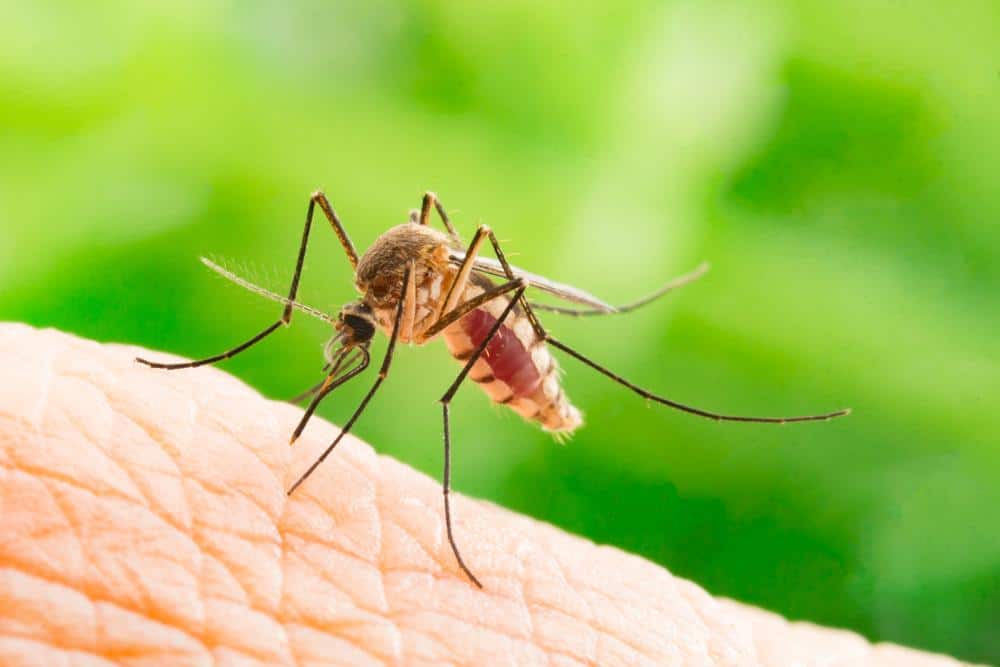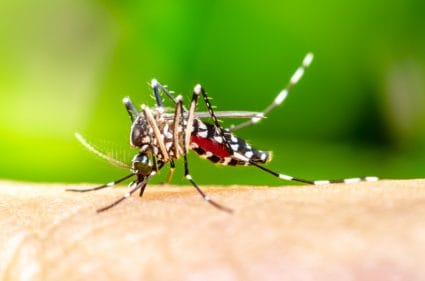
Basil, a well-loved herb known for its fragrant aroma and culinary uses, has a lesser-known function as a natural mosquito repellent. This blog post will delve into the science behind this claim, explore different methods of using basil for mosquito control, and discuss other benefits of this versatile herb.
Basil can be used as a natural mosquito repellent due to its strong fragrance and compounds like eugenol, thymol, and cineol. To use basil as a repellent, you can either rub crushed basil leaves on your skin, plant basil near other plants to deter pests, scatter shredded basil around your outdoor area, or burn it as an incense. You can also make a mosquito repellent spray using basil leaves, boiling water, witch hazel or vodka, and optional essential basil oil.
Basil: The Natural Mosquito Repellent
Basil is effective in repelling mosquitoes due to certain compounds and its strong fragrance. Compounds like eugenol, thymol, and cineol, found in basil, are known for their insect-repellent properties. A 2009 study found that these compounds were highly toxic to a wide range of mosquito larvae. Another research found that basil leaves alone provided a 79% efficiency in deterring several mosquito species, while a topical application of basil oil was 100% effective at deterring mosquitoes in a laboratory setting.
Types of Basil Effective at Repelling Mosquitoes
While all varieties of basil possess mosquito-repellent properties, some are more effective than others. Sweet basil (Ocimum basilicum) contains volatile compounds such as citronella, estragole, limonene, and nerolidol that help deter mosquitoes. Other types like lemon basil and lime basil are also particularly effective against mosquitoes.
How to Use Basil as a Mosquito Repellent
There are several ways to use basil as a natural mosquito repellent:
- Skin Protection: Crush a few basil leaves and rub them on your skin and clothing. This will help repel mosquitoes.
- Companion Planting: Plant basil near other plants that are troubled by pests. Basil’s aromatic oils are known to repel these insects.
- Scatter Shredded Basil: Cut some basil leaves off your plants, bruise them, and strew them on your porch or patio to enjoy outdoor activities without insects buzzing around.
- Burn Basil as an Incense: Lime basil repels insects when burned. Use a fire-safe container and keep it away from other flammable materials to reduce the risk of fire.
Basil Mosquito Repellent Spray Recipe
A homemade basil mosquito repellent spray is another option. Here’s a simple recipe:
- Gather a heaping handful of fresh basil leaves.
- Pour 1/2 cup of boiling water over the basil leaves and let them steep for 2 to 4 hours.
- Squeeze the basil leaves to extract as much liquid as possible. Pour the infused liquid into a spray bottle.
- Add 1/2 cup of witch hazel or vodka to the spray bottle.
- Optionally, add 1/4 teaspoon of essential basil oil to increase the potency.
- Shake the bottle gently to mix the contents.
- Apply the all-natural insect repellent by spraying it on your skin, avoiding your eyes, nose, and mouth.
Basil: More than Just a Mosquito Repellent
In addition to its mosquito-repelling properties, basil offers several health benefits. It reduces oxidative stress, regulates blood sugar, prevents heart disease, reduces inflammation, protects against infections, improves mental health, and is nutrient-rich.
Caveats and Limitations
While basil can be beneficial as a mosquito repellent, it’s important to note that it may not be as effective or long-lasting as commercial repellents, especially in areas with a higher risk of mosquito-borne illnesses. Basil oil contains a known carcinogen called methyl eugenol. The effectiveness of basil as a mosquito repellent may vary depending on the species of mosquito and other factors. Also, some people may be allergic to basil and should avoid using it as a repellent.
Conclusion
Basil can be a natural, eco-friendly alternative to synthetic mosquito repellents. However, it’s important to combine it with other mosquito control methods for optimal results. As always, remember to consult a healthcare professional before trying any new health regimen.
Frequently Asked Questions
Can I use dried basil leaves instead of fresh ones to repel mosquitoes?
While fresh basil leaves are more potent due to the higher content of essential oils, dried basil can still be used as a mosquito repellent. However, it may not be as effective as fresh basil.
Is basil safe for pets?
Yes, basil is generally safe for pets. However, it’s always best to consult with a vet before introducing any new plant or herb into your pet’s environment.
Can I use other herbs to repel mosquitoes?
Yes, other herbs such as citronella, lemongrass, and peppermint also have mosquito-repelling properties.
Will eating basil help repel mosquitoes?
While basil has many health benefits, eating it won’t necessarily repel mosquitoes. It’s the scent of basil that deters these pests, so it’s more effective to use it topically or in the surrounding environment.
Can I use the basil mosquito repellent spray on my clothes?
Yes, you can spray the basil mosquito repellent on your clothes. However, it’s a good idea to test it on a small, hidden area first to ensure it doesn’t stain or discolor your fabric.










